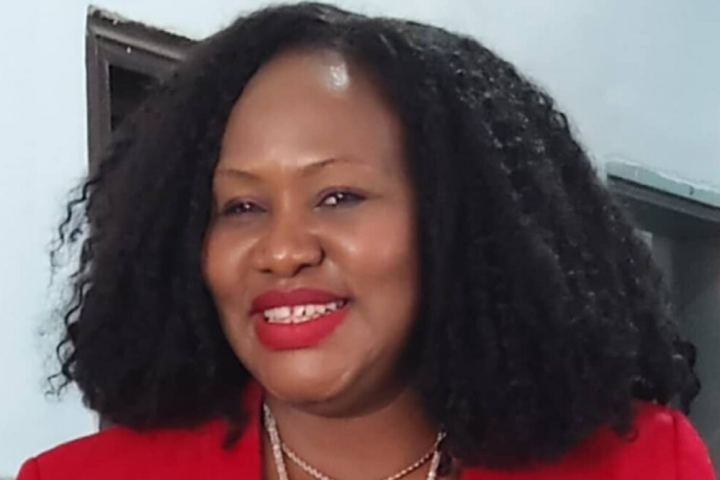Nursing Leadership in Pediatric Surgical Care
Comrade Olubunmi Lawal-Aiyedun

Comrade Bunmi is a pediatric nurse with over 20 years of nursing experience. Bunmi is actively building a better surgical future for Nigerian children through the Maternal, Adolescent, Reproductive, Child Health (MARCH) Care Initiative, a non-profit that she founded. Lifebox caught up with Bunmi to discuss the challenges and barriers that nurses often face within global surgery and her work advocating the role of nursing to shift the tide and build stronger, more inclusive healthcare systems. Bunmi is a Board member of the Global Initiative for Children’s Surgery (GICS) and Lifebox Nursing Advisor.
This article is part of the Smile Train-Lifebox Safe Surgery and Anesthesia Initiative Content Series.
“When it comes to healthcare leadership, it is always the physicians who are the directors, HODs, and chairs of the board. Even though nursing is one of the largest healthcare professions globally, we are often not given the opportunity to play a leadership role in making healthcare decisions. In Nigeria, the pediatric department is the one that needs the utmost development regarding the health of children, including infants with special needs.
Why Nurses Are Not Given the Opportunity to Make Decisions
Nurses are some of the most hardworking professionals in the world, handling about 60% of the tech workforce. From medical school to professional life, they’re trained to serve patients with all their hearts. Unfortunately, they’re often not given the authority to make decisions or to speak up about their work, potential improvements, and so on.
Having worked as a pediatric nurse for more than two decades and being a member of the Global Initiative for Children’s Surgery (GICS) I have been striving to integrate nursing care into GICS programs so that they can have the authority to make decisions about healthcare services, healthcare quality, policy, and related guidelines. This work would empower nurses with the tools and opportunities they need.
I know that many of my colleagues might lack the confidence to talk about these issues because they might think nothing is going to change in their environments. They think that physicians will always represent them whenever it comes to policy formulation and policy implementation. Additionally, many nurses do not speak out for fear that their salary may be reduced, or they may lose their position. But, if we don’t allow nurses to raise their hands and speak up, how can we work together? After all, it’s not a crime to be a nurse.
Nurses as Leaders in Pediatric Care
When we’re given the responsibility and authority to become influential leaders, we can dramatically shape both policy and politics. We can also work as direct caregivers and improve our communication with physicians and the quality of care. I’m a member of The G4 Alliance, one of the best platforms to reach out to nurses and improve nursing care.
The active role of nurses in leadership can also improve when they can speak on behalf of children with congenital anomalies. For example, we can speak for children who have cleft palates by actively playing a role in their surgery, ensuring positive surgical outcomes, and widening access to surgery. This can only happen when we work together as a team and treat each other with professional respect.
What Is Stopping Nurses from Providing Safe Surgery
- Universal healthcare coverage cannot be achieved when we, as nurses, segregate, which is not the way to attain sustainable development. Not working as a team is one of the major challenges that is stopping us from seizing the opportunities to be trained, be involved in innovations related to healthcare systems, and improve access to the quality-of-care services.
- Lack of knowledge and skills, resources, and involvement are some other barriers.
- Lastly, limited research within the surgical space is a major barrier.
The Role of Nursing in Surgical Planning
In 2017, when I was President of the National Association of Nigeria Pediatric Nurses, I was invited to attend the start of Nigeria’s National Surgical, Obstetric and Anesthesia Plan, what we refer to as NSOAPs. I saw this as an opportunity to lobby for the integration of nursing into this plan. In 2019, Nigeria launched its National Surgical, Obstetric, Anesthesia, and Nursing Plan (NSOANP). I am so excited to say that we are the only country in the world that has integrated nursing into its framework. Smile Train is supporting nurses training on cleft surgical safety and nurse participation in a course on research design and methodology. This five-year plan is now being implemented with nursing recognized as a core component of the surgical system.
Conclusions and Recommendations
Caring for children with health complications and terminal illness requires skilled leadership. Being a Board Member of the Global Initiative for Children's Surgery, I know there’s room for nurses to be considered to take part in decision-making about pediatric care management. There’s much need for different platforms and opportunities where nurses should be given chances to support the quality of services to children with congenital anomalies.
Let’s build stronger systems together, share knowledge, and build a better health future for all of our children, no matter where they come from or who they are.
